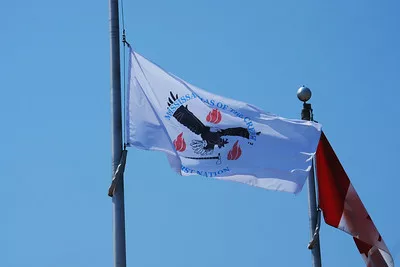History of Truth and Reconciliation in Markham
City of Markham Land Acknowledgement

We begin today by acknowledging the traditional territories of Indigenous peoples and their commitment to stewardship of the land. We acknowledge the communities in circle. The North, West, South and Eastern directions, and Haudenosaunee, Huron- Wendat, Anishnabeg, Seneca, Chippewa, and the Mississaugas of the Credit peoples. We share the responsibility with the caretakers of this land to ensure the dish is never empty and to restore relationships that are based on peace, friendship, and trust. We are committed to reconciliation, partnership and enhanced understanding.
History of Truth and Reconciliation in Markham
In 2017, the City of Markham signed a historic agreement of cultural collaboration with Eabametoong First Nation, also known as Fort Hope, Agreement of Cultural Collaboration with Eabametoong First Nation. Eabametoong First Nation is an Ojibway First Nation located 360 kilometers northeast of Thunder Bay, Ontario, and 1,000 kilometers north of Markham. This first-of-its-kind agreement between an urban municipality and a remote northern First Nation community will enable us to partner and learn from one another.
Spcifically, the two communities have agreed to:
- Promote social, cultural, and economic collaboration.
- Promote harmony and goodwill for the betterment of their residents.
- Raise public awareness.
In 2017, the City of Markham opened Aaniin Community Centre and Library, named after the Ojibwe word for "welcome". The Ojibwe Nation is part of the Anishinaabe Peoples. Aaniin is a space where our communities can come together, listen, learn, and share experiences.
In January 2018, the City approved its formal land acknowledgment to recognize and honour the traditional territories of Indigenous Peoples.
In 2021, the City of Markham updated its land acknowledgement.
